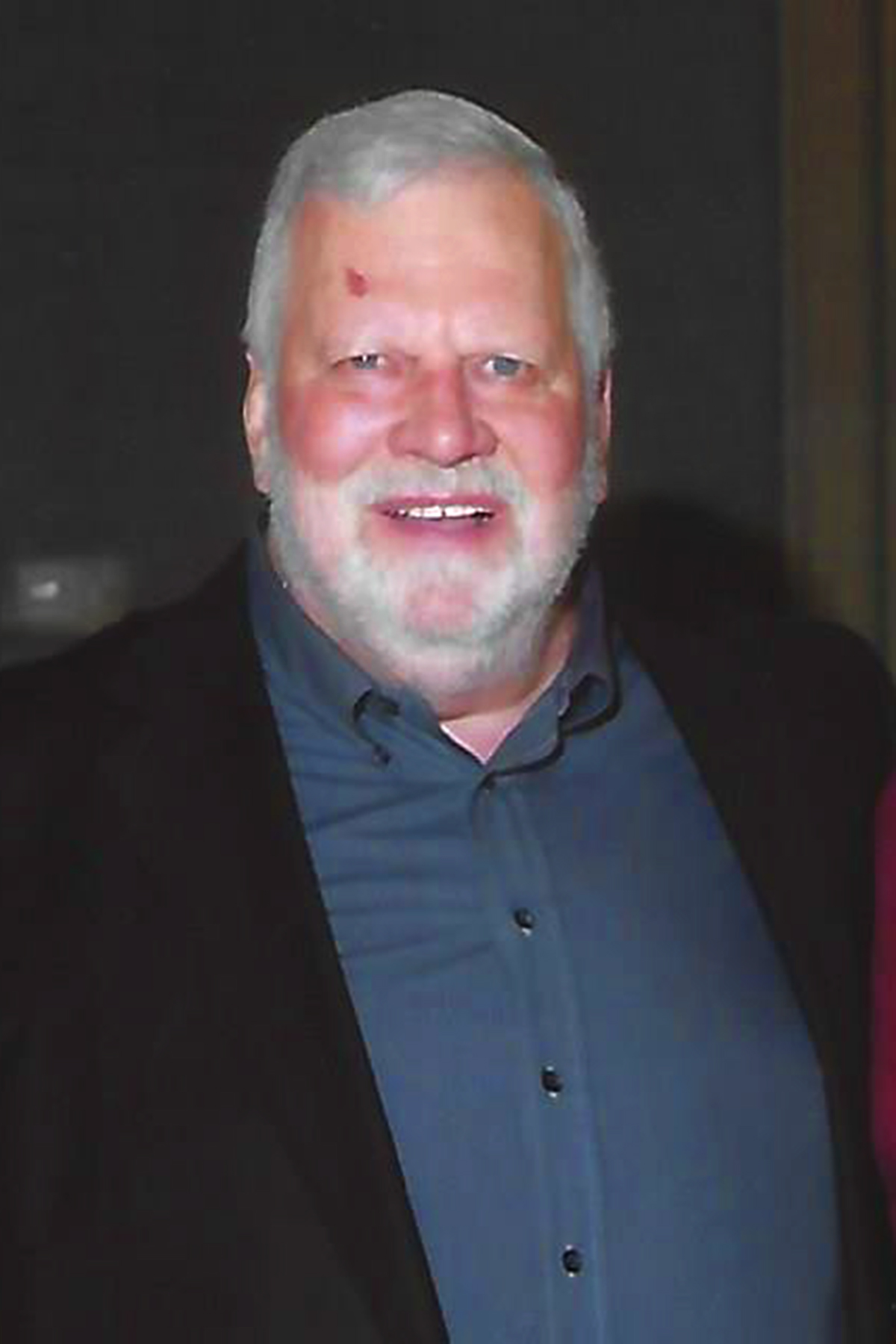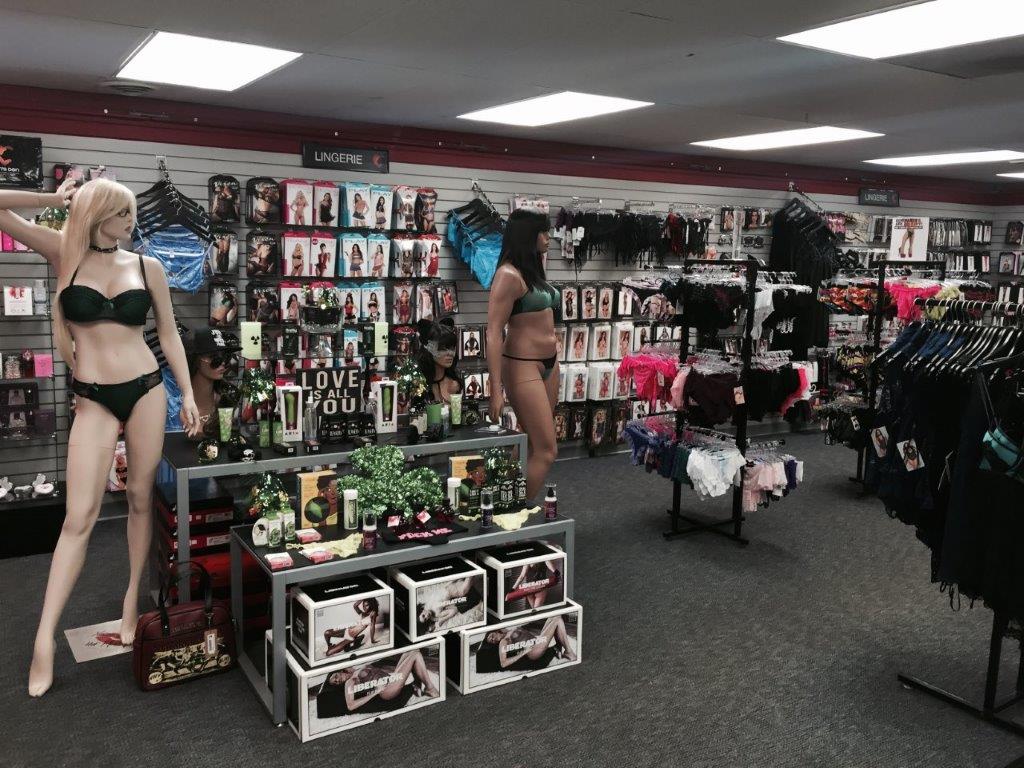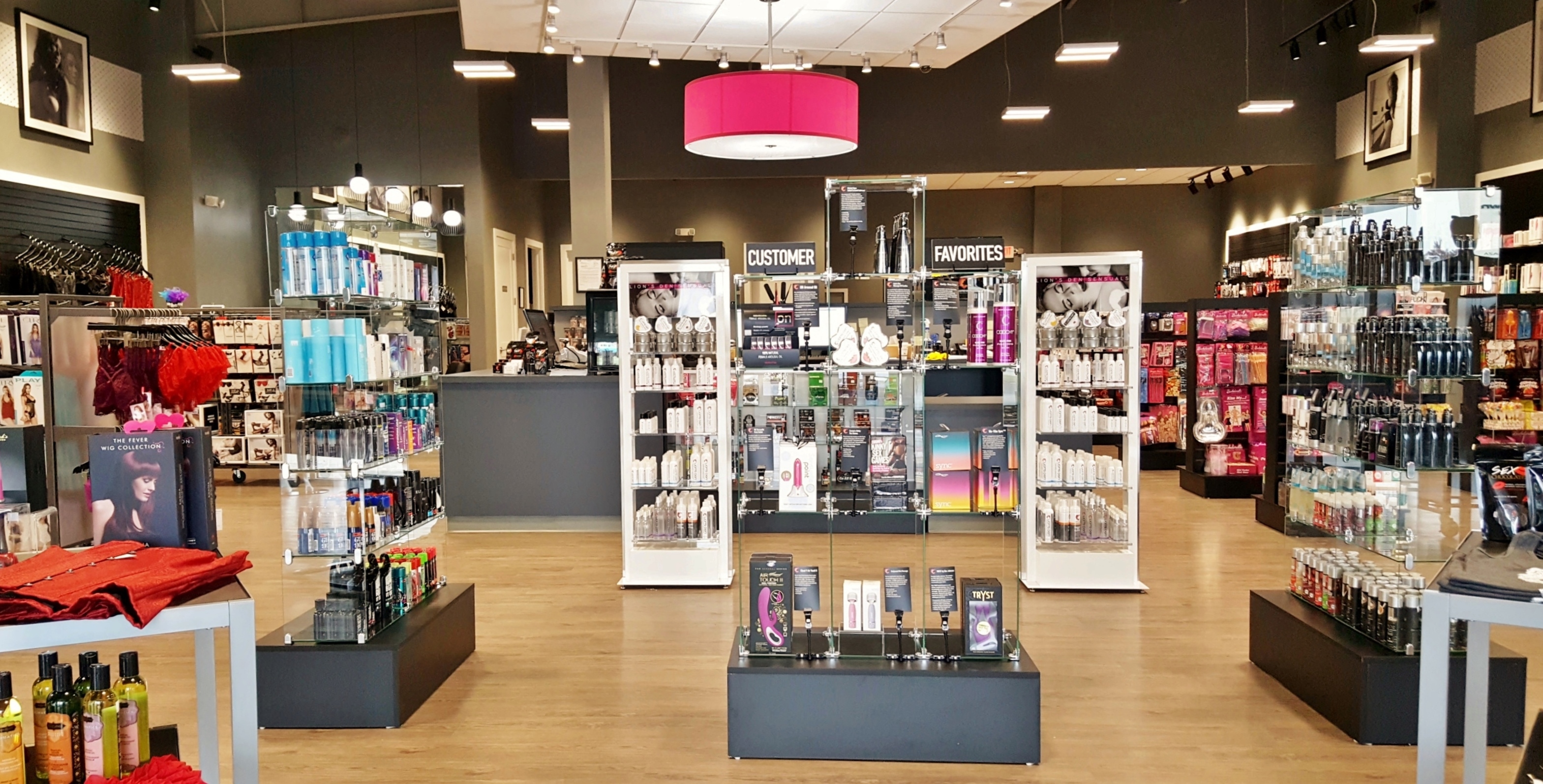As the founder of Lion’s Den, Michael Moran has been privy to almost a half-century of progression in the adult industry, including a nationwide expansion of his pride of stores.
(Note: This Store Spotlight appears in the April 2020 issue of STOREROTICA Magazine)
Next year, the Lion’s Den store chain that Michael Moran started in 1971 in a Columbus, Ohio storefront he borrowed from his parents will celebrate its 50th anniversary. The Lion’s Dens were one of the first store chains to cater to female customers and couples and to shy away from arcades. If you’ve traveled the interstate highway system in the Midwest in the past 40-plus years, you’ve almost certainly noticed billboards advertising upcoming Lion’s Den stores. In short, the Lion’s Den store chain is one of the pillars of the nation’s erotic retail industry.
STOREROTICA Legal Correspondent Larry Kaplan sat down with Moran to reflect on the history of the Lion’s Den chain and what lies ahead for the stores.
SE: How did you initially get started with the adult retail industry?
MORAN: I had just graduated from Ohio State University in 1969. I was doing some entertainment ventures, and I wanted to establish a steady income. I got permission from my folks to use one of their retail storefronts on Morris Road, which was then a central commercial area in Columbus. At that time, three adult bookstores were operating in downtown Columbus. I approached each of them with my offer to furnish a storefront if they would help me put it in business. One of them, George Thomas from Toledo, took me up on it. So in February of 1971, we opened the First Lion’s Den, one of the first suburban adult bookstores in the US, on Morse Road at Westerville Road in suburban Columbus, not knowing at this point exactly what to expect. At the time, most adult bookstores were in the centers of cities.

As soon as we put up our sign, people started walking in our door. We achieved success from day one. In those days, all we sold was magazines, digests, and Ben Wa balls. We didn’t even have many 8mm films yet.
Not many people had the stomach to open bookstores at that time because you knew you were going to get busted. My first arcade was at that store. It was nothing more than six quarter nickelodeons. Men would stand in front of it and feed in quarters to view the 8mm movie it displayed.
SE: Which were the next few Lion’s Dens you opened?
MORAN: I didn’t start to build a chain until 1985 when I decided to go with what had endeavor been most successful for me and opened another store in downtown Columbus, followed by a store in Heath, Ohio, which is still operating. The landlord for the Heath store became my partner. From there, we kept growing in Central Ohio.
By 1990, we had opened six or seven stores and began fighting a nuisance ordinance against our arcades. We lost and were forced to close the arcades for a year. We had to fight to keep the stores themselves open. A Cleveland-based First Amendment attorney that we worked with, Michael Murray, was able to win some cases for us. We had to file a bond for the value of the store to remain open without the arcades.
During that year, we realized we didn’t need the arcades to make money. So we converted the stores that fought the nuisance ordinance to just retail. At that time, we had started to open our first interstate highway stores. We could make good money there with truckers and transients moving between cities. We sold a lot of VHS tapes then, followed by the evolution of the DVDs, which kept everything growing. We kept building new stores and adding to the chain.
SE: And contrary to popular belief, based on realizing you could make money without arcades, those freeway stores didn’t have booths?
MORAN: That’s correct. There are now a few of those stores that weren’t performing well where we eventually added booths to supplement income, but most of our stores don’t have arcades because we found we could be successful and attract more women and couples without them.


SE: It sounds like you were a pioneer in moving towards today’s upscale adult boutiques that steer clear of booths?
MORAN: Yes, I think that we were by just as it’s evolved, once we saw there was money without booths. Then, about 15-20 years ago, I noticed that women were a largely neglected part of the market, and we have to go out and start bringing them into our stores.
Since the beginning, my first slogan was, “The adult bookstore for men and women.’ I always made it clear that men and women were welcome. By the early 2000s, we decided to go after the ladies actively. We even had a focus group at one point to see what they thought of our name, our (logo and sign) colors, the stores, all this. They felt that what we were doing and the assortment were fine, but many women thought we were too harsh in our advertising – our colors and things. Because at that time, all of my interstate billboards were yellow with black letters, simply promoting “adult.”
Armed with that input, our then, newly-hired marketing director, Pete Potenzini, and changed our logo and colors and started using a softer presentation. Some of the women in the focus group thought Lion’s Den was a little harsh, but everyone knew us already, so we kept that. We’ve built the chain further in the eight-to-ten years since then with new colors and more of an atmosphere congenial to couples and women. Today, one of our biggest demographics is women 25-35.
SE: It seems like it’s a very different industry from what it was in 1971 in so many ways.
MORAN: Oh, it is. And with the demise of the DVD, we lost a lot of older male media buyers who would buy several videos to take home. Today, they don’t need to purchase content; they can stream it on their home or mobile systems. However, we still do about 10% of our sales in media products. And we’re still selling some magazines.
SE: Who are the individuals most responsible for the opening of those initial Lion’s Den locations?
MORAN: George Thomas, who gave me my start by providing the inventory for the storefront my folks let me use for my first store and (industry legend) Reuben Sturman, the co-founder of Doc Johnson.
SE: When did the growth move beyond a few stores to a “chain”? What were the advantages of having a chain of stores?
MORAN: I decided to start building a chain in 1985. I added a store in downtown Columbus; we built other central Ohio stores in Heath, Washington Courthouse, Quaker City, and Chillicothe. A chain afforded us more buying power and an opportunity to get some men out in the field to look for more sites along the interstates around the Midwest, and the chain grew from there.
SE: You were one of the first, if not the first, to brand your stores, starting in 1971.
MORAN: Yes. Previously, none of the old-school stores were named the same. They were afraid of legal problems spreading from being associated with each other. But I decided to keep the same name, and we built the chain as Lion’s Den from the start.


SE: How difficult was it to open adult “porn” stores in the Midwest? How did you maneuver these legal and moral obstacles at the time?
MORAN: My first attorney for the stores was Lyman Brown. He fought my earliest battles. When we started fighting nuisance ordinances, around 1990, I began working with Michael Murray. Since then, he’s been my chief attorney for 30 years. Together, we’ve won a lot of exciting battles regarding billboards, the right to open stores, and finding zoning laws unconstitutional. Mike has been a big help to me, keeping me in business, winning battles that pushed the First Amendment forward.
In reference to “moral” obstacles, in 1978, my original store and another I had beside it were destroyed in bombings. One was in a frame building, which landed in the middle of Morris Road. It was a total loss. They chucked a bomb into a bathroom window of my main store. It was in an area of concrete block, so it didn’t do as much damage. It moved it off of the frame. We had to bring it back onto the foundation, but we were back in business in a few weeks.
SE: Were legal expenses to fight these battles a large part of your operational budget in those days?
MORAN: That’s why I have so much respect for Reuben, who was actually the father of the industry. So many of the young operators have no idea who he is. Reuben would help us stay in business. During my early busts, the police would take all the merchandise in the store. Within a few days, Reuben had the store restocked with more merchandise. And he would also pay half of our legal expenses for these early busts, which was a big help.
SE: Do you encourage other operators to be members of industry trade associations like the Free Speech Coalition?
MORAN: Absolutely. We’ve been a member for decades as well as of ASACP (which fights child exploitation).
SE: Opening and maintaining 48 stores in 22 states is undoubtedly no easy task! What were the biggest obstacles to your growth as a store chain?
MORAN: Among the most significant challenges was finding good people to help me find the locations and manage the stores. We wouldn’t have been able to expand if not for several people who were with me most of their lives. When I first opened, we grew one person at a time. The business was done on my kitchen table. We got an office in 1986. We kept growing and bought our headquarters building in 2004.
SE: You were way ahead of the curve when you had the foresight to realize early on that you could prosper without booths and that you wanted to go for an emphasis on women and couples. What changes have you seen that have had the most significant effect on how your stores operate, since 1971?
MORAN: The most significant change has been the demise of the DVD. We’ve transitioned from DVDs representing 50% of our sales to just 10% today. We’ve certainly had to evolve into a more female-friendly environment. We’ve picked up the slack with additional novelties, lingerie, clothing, and other items.
SE: What are the keys to being profitable in 2020, especially with online retail eating into brick-and-mortar sales. What do you do to counteract showrooming?
MORAN: I still feel that adult specialty retail is a unique area. People enjoy coming to our shops and being able to see the item, touch it, learn how it operates. We have great, knowledgeable people to serve our customers and to answer any questions they might have. We try to leave those who are shy alone but to help those interested in education and guidance. We have a lot of ladies in our operation. I think people feel more comfortable with them. And our rewards program has been very successful and a big help.
I also believe a lot of our customers pay cash, which is unusual in retail today. They don’t want an online purchase trail.
In February of 1971, we opened the First Lion’s Den, one of the first suburban adult bookstores in the US. As soon as we put up our sign, people started walking in our door. (But) not many people had the stomach to open bookstores at that time because you knew you were going to get busted. — Mike Moran
SE: What separates a Lion’s Den store from another adult retail store where a customer could shop? What are the defining characteristics of the Lion’s Den brand?
MORAN: I’ve been complimented about the cleanliness of our stores. We try to keep them bright and lit nicely. We pride ourselves on the quality of the service our associates provide and the convenience of our locations. We’re just trying to do whatever we can to make their experience fun, so they will continue to come back.
We just had our biggest year ever, and we continue to grow. I’m very proud of our people and management and all that they have achieved.
SE: Harry Mohney (founder of the Deja Vu Love Boutiques and Deja Vu adult clubs) and others who’ve been around as long as you have told me that when they started, handshakes were the standard for agreements. Your word was your bond. How many of your relationships are still that way?
MORAN: I’ve worked with many people for decades, pretty much from the beginning. Trans World and General Video, Williams Trading, National Video, Honey’s Place, Eldorado, CalExotics, Evolved, Pipedream, Wicked and more. It’s still pretty much a handshake. I’ve always paid my bills, and we try to do what we say we’re going to do.
Larry Kaplan is the Legal Correspondent for StorErotica Magazine. Mr. Kaplan is a business broker in the sale and purchase of adult retail stores and adult nightclubs and the Executive Director of the ACE of Michigan adult nightclub state trade association. Contact Larry Kaplan at 313-815-3311 or e-mail larry@kaplanstoresales.com.
For information on joining or supporting the Free Speech Coalition, email https://www.freespeechcoalition.com/ or call 818-348-9373. For information on joining or supporting ASACP, The Association of Sites Advocating Child Protection, go to https://www.asacp.org/index.html or call 323-908-7864.














You must be logged in to post a comment.